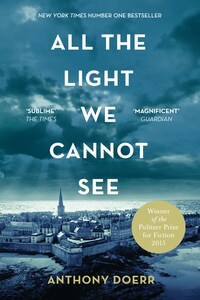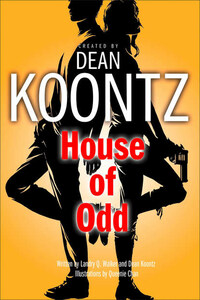Seventy-four-year-old Alma Konachek lives in Vredehoek, a suburb above Cape Town: a place of warm rains, big-windowed lofts, and silent, predatory automobiles. Behind her garden, Table Mountain rises huge, green, and corrugated; beyond her kitchen balcony, a thousand city lights wink and gutter behind sheets of fog like candleflames.
One night in November, at three in the morning, Alma wakes to hear the rape gate across her front door rattle open and someone enter her house. Her arms jerk; she spills a glass of water across the nightstand. A floorboard in the living room shrieks. She hears what might be breathing. Water drips onto the floor.
Alma manages a whisper. “Hello?”
A shadow flows across the hall. She hears the scrape of a shoe on the staircase, then nothing. Night air blows into the room—it smells of frangipani and charcoal. Alma presses a fist over her heart.
Beyond the balcony windows, moonlit pieces of clouds drift over the city. Spilled water creeps toward her bedroom door.
“Who’s there? Is someone there?”
The grandfather clock in the living room pounds through the seconds. Alma’s pulse booms in her ears. Her bedroom seems to be rotating very slowly.
“Harold?” Alma remembers that Harold is dead but she cannot help herself. “Harold?”
Another footstep from the second floor, another protest from a floorboard. What might be a minute passes. Maybe she hears someone descend the staircase. It takes her another full minute to summon the courage to shuffle into the living room.
Her front door is wide open. The traffic light at the top of the street flashes yellow, yellow, yellow. The leaves are hushed, the houses dark. She heaves the rape gate shut, slams the door, sets the bolt, and peers out the window lattice. Within twenty seconds she is at the hall table, fumbling with a pen.
A man, she writes. Tall man in the yard.
Alma stands barefoot and wigless in the upstairs bedroom with a flashlight. The clock down in the living room ticks and ticks, winding up the night. A moment ago Alma was, she is certain, doing something very important. Something life-and-death. But now she cannot remember what it was.
The one window is ajar. The guest bed is neatly made, the coverlet smooth. On the nightstand sits a machine the size of a microwave oven, marked Property of Cape Town Memory Research Center. Three cables spiraling off it connect to something that looks vaguely like a bicycle helmet.
The wall in front of Alma is smothered with scraps of paper. Diagrams, maps, ragged sheets swarming with scribbles. Shining among the papers are hundreds of plastic cartridges, each the size of a matchbook, engraved with a four-digit number and pinned to the wall through a single hole.
The beam of Alma’s flashlight settles on a color photograph of a man walking out of the sea. She fingers its edges. The man’s pants are rolled to the knees; his expression is part grimace, part grin. Cold water. Across the photo, in handwriting she knows to be hers, is the name Harold. She knows this man. She can close her eyes and recall the pink flesh of his gums, the folds in his throat, his big-knuckled hands. He was her husband.
Around the photo, the scraps of paper and plastic cartridges build outward in crowded, overlapping layers, anchored with pushpins and chewing gum and penny nails. She sees to-do lists, jottings, drawings of what might be prehistoric beasts or monsters. She reads: You can trust Pheko. And Taking Polly’s Coca-Cola. A flyer says: Porter Properties. There are stranger phrases: dinocephalians, late Permian, massive vertebrate graveyard. Some sheets of paper are blank; others reveal a flurry of cross-outs and erasures. On a half-page ripped from a brochure, one phrase is shakily and repeatedly underlined: Memories are located not inside the cells but in the extracellular space.
Some of the cartridges have her handwriting on them, too, printed below the numbers. Museum. Funeral. Party at Hattie’s.
Alma blinks. She has no memory of writing on little cartridges or tearing out pages of books and tacking things to the wall.
She sits on the floor in her nightgown, legs straight out. A gust rushes through the window and the scraps of paper come alive, dancing, tugging at their pins. Loose pages eddy across the carpet. The cartridges rattle lightly.











